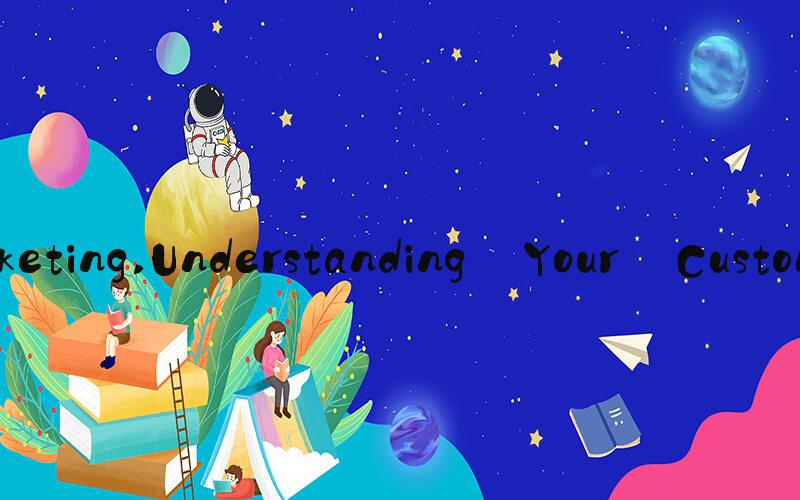AI答案
 Marketing: The Key to Business Success
Marketing: The Key to Business SuccessMarketing is a key component of any successful business strategy. It involves promoting products or services to potential customers, building brand awareness, and ultimately driving sales and revenue. In today's digital age, marketing has become even more critical as consumers increasingly turn to online channels to research and purchase products. In this article, we'll explore the importance of marketing and how businesses can develop a successful marketing strategy.
Understanding Your CustomersThe foundation of any effective marketing strategy is a deep understanding of your target audience. This involves researching your customers' needs, preferences, and behaviors, and using this information to develop targeted marketing messages that resonate with them. One way to gather this data is through customer surveys, focus groups, and online analytics tools. By understanding your customers' desires and pain points, you can craft messaging that speaks directly to their needs, increasing the likelihood of conversion.
Building a Strong BrandA strong brand is essential for any business looking to succeed in today's competitive marketplace. A brand encompasses the company's values, mission, personality, and visual identity, and it's the foundation upon which all marketing efforts should be built. To build a strong brand, businesses need to communicate a consistent message across all channels and touchpoints. This includes website design, social media, advertising, and customer service. A strong brand builds trust with customers, setting the stage for long-term loyalty and advocacy.
Choosing the Right Marketing ChannelsWith the many marketing channels available today, it's important to choose the ones that will be most effective for your business. Factors to consider when selecting marketing channels include your budget, target audience, and overall marketing goals. For example, if you're trying to target a younger demographic, social media platforms like Instagram and TikTok may be more effective than traditional advertising channels. Alternatively, if you're trying to reach decision-makers in the B2B space, LinkedIn and email marketing may be more effective. A well-crafted marketing plan should include a mix of channels tailored to your specific business needs.
Crafting Compelling Marketing MessagesTo cut through the noise in today's crowded marketplace, businesses need to craft compelling marketing messages that capture customers' attention and inspire them to act. This involves understanding your customers' pain points and desires and using this information to craft messaging that speaks directly to them. For example, if you're selling a product that solves a common problem, your messaging should highlight this benefit in a clear and concise manner. Additionally, marketing messages should be communicated across all channels consistently, ensuring that your brand message is coherent and memorable.
Measuring Marketing SuccessFinally, it's essential to measure the success of your marketing efforts to determine what's working and what's not. This involves tracking key performance metrics like website traffic, conversion rates, and customer acquisition costs. By analyzing this data, businesses can make informed decisions about where to allocate marketing resources and adjust their strategy as needed. Measuring marketing success also helps businesses demonstrate ROI to stakeholders and make data-driven decisions, setting the stage for long-term success.
ConclusionIn today's competitive business landscape, marketing is more important than ever. By understanding your customers, building a strong brand, choosing the right marketing channels, crafting compelling messaging, and measuring success, businesses can develop a successful marketing strategy that drives sales and revenue. By prioritizing marketing, businesses can stay ahead of the competition and build a loyal customer base that sustains long-term success.
